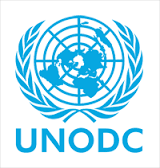9 December 2017
VIENNA, 9 December 2017 (UN Information Service) — Young people denied all-empowering education, women excluded from life-saving surgery and workers prevented from working are just some of corruption’s unwitting victims.
Corruption has a catastrophic impact on societies; it stifles opportunities, denying vulnerable people access to infrastructure, and condemns them to lives of inequality and inequity. The victims of corruption are not from a single generation. This crime haunts successive generations impacting on countless numbers of people.

If people are to be removed from poverty and economic growth promoted, the world must stand united against corruption. This means rejecting corruption and embracing accountability, transparency and good governance. To achieve this, we must make determined use of our sharpest tools, this means universal adoption and full implementation of the UN Convention Against Corruption.
With 183 parties, we are nearly there, but there is a need to go still further. Anti-corruption partnerships formed with the private sector, civil society and academia can ensure that everyone is united in ending corruption. We must also be innovative and creative in ensuring that corruption remains high on the world’s agenda.
Just as importantly, the 2030 Agenda for Sustainable Development calls for substantial reductions in corruption as part of the efforts to build peaceful and inclusive societies under Goal 16. It is a recognition that corruption can wreck sustainable development.
On the International Day Against Corruption, UNODC vows that it will continue to work with countries, and its many partners, to ensure everyone is united against corruption for development, peace and security.
